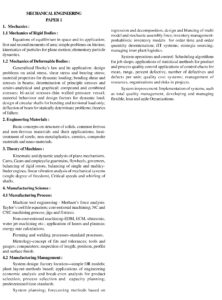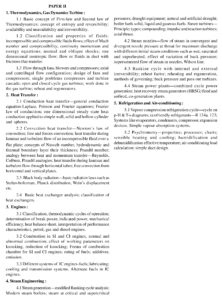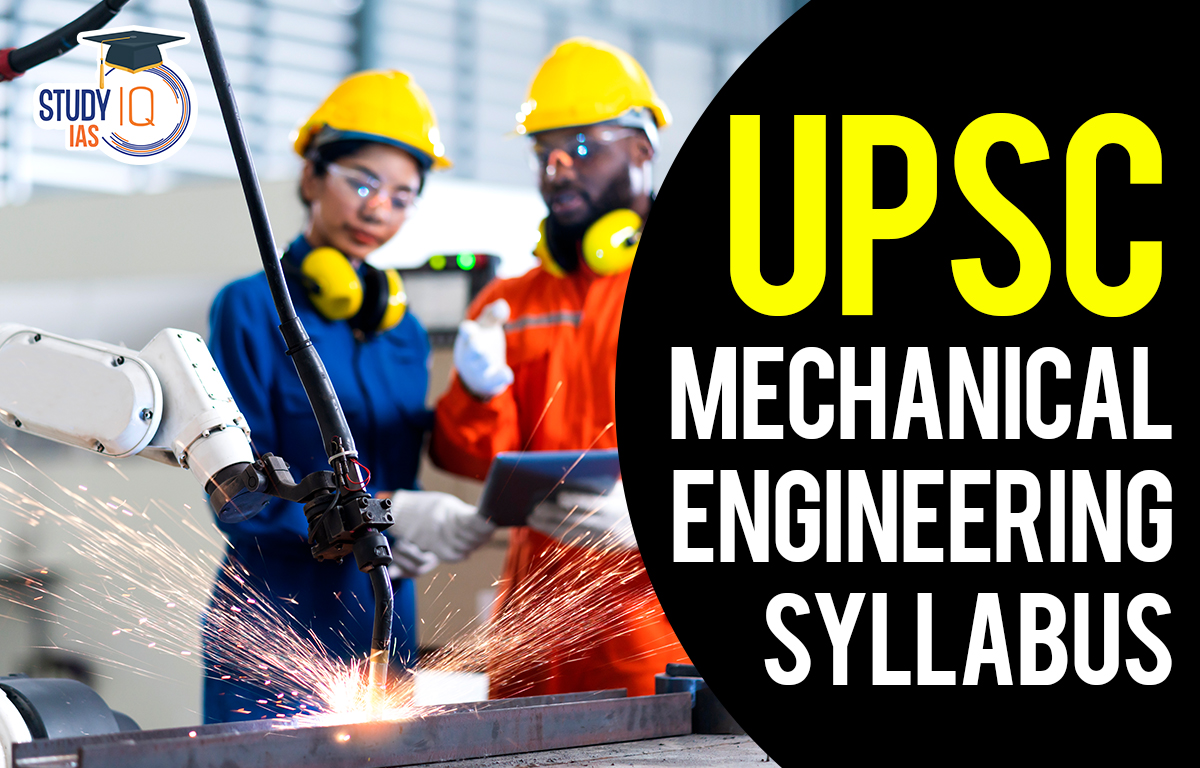Table of Contents
UPSC Mechanical Engineering Syllabus
UPSC Mechanical Engineering Syllabus: Mechanical Engineering is one of the 48 disciplines on the list of optional subjects in the UPSC mains. The Mechanical Engineering syllabus for the IAS Examination assesses students’ grasp of mechanical engineering components and their applications. This course covers mechanics, manufacturing, thermodynamics, refrigeration, and air conditioning, as well as its applications.
You can find the UPSC Mechanical Engineering Syllabus in this article. This article provides you with full information regarding the UPSC Mechanical Engineering syllabus that’s required to prepare for the UPSC Syllabus.
UPSC Mechanical Engineering Optional Syllabus
Topics covered in the UPSC Mechanical Engineering Syllabus include mechanics, manufacturing, thermodynamics, refrigeration, and air conditioning, as well as their applications. Applicants with a mechanical engineering background are more likely to choose this choice. Candidates who choose this optional subject must read the entire UPSC Mechanical Engineering Syllabus to understand the topics that must be covered.
A general comprehension of the syllabus will assist you in planning your preparation. To begin, you must get a descriptive view of the UPSC Mechanical Engineering Syllabus, which will allow you to plan your preparation strategy.
Mechanical Engineering Optional for UPSC Mains Syllabus
In UPSC Mains, the UPSC Mechanical Engineering Optional Syllabus is divided into two papers, Paper 1 and Paper 2. Papers 1 and 2 each carry 250 marks, for a total of 500 marks. You must first qualify for the UPSC Prelims before proceeding to the Mains Examination.
UPSC Mechanical Engineering Syllabus Paper 1 PDF
- Mechanics of rigid bodies
- Mechanics of Deformable Bodies
- Engineering Materials
- Theory of Machines
- Manufacturing Process
- Manufacturing Management

UPSC Mechanical Engineering Syllabus Paper 2 PDF
- Thermodynamics, Gas Dynamics, Turbine
- Heat Transfer
- Engines
- Steam Engineering
- Refrigeration and Air Conditioning

This article discusses the complete UPSC Mechanical Engineering syllabus for UPSC/IAS. Candidates can download the PDF in this article. For more details related to UPSC Examination; students can visit the official website of StudyIQ UPSC Online Coaching.


 Daily Quiz 18 April 2025
Daily Quiz 18 April 2025
 OSSC CGL Syllabus 2025 and Exam Pattern ...
OSSC CGL Syllabus 2025 and Exam Pattern ...
 AI and its Regulation in India, Limitati...
AI and its Regulation in India, Limitati...





















